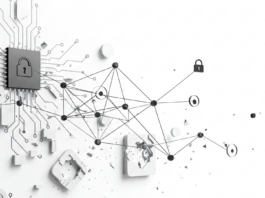In recent months, the U.S. government has taken significant measures to ban Kaspersky antivirus, a popular cybersecurity solution originating from Russia. Despite this ban, many users across the United States are still utilizing the software, raising important questions about cybersecurity, user choice, and the implications of government regulations.
Understanding the Kaspersky Ban
Earlier this year, the Biden administration imposed a ban on Kaspersky antivirus, citing serious privacy concerns. The government expressed fears that the software could be used by the Russian state to access sensitive information from U.S. citizens. While these claims have been made, there is limited public evidence to support the allegations of data theft or espionage. Nonetheless, the impact of this ban has been significant, forcing Kaspersky to cease its U.S. operations as of mid-July 2024.
How Kaspersky Users Circumvent the Ban
Despite the ban, many users have found creative ways to continue using Kaspersky antivirus. According to reports, these methods largely involve “tricking” the software into believing that the device is located outside the United States. Here are a few techniques that users have employed:
- Changing Update Servers: Some individuals have modified their settings to include non-U.S. update servers, allowing them to receive updates without restriction.
- Using VPNs: Others have opted to use Virtual Private Network (VPN) tools to mask their device’s location, enabling them to continue using Kaspersky as if they were operating from a different country.
Why Do Users Stick with Kaspersky?
The decision to continue using Kaspersky antivirus, despite government warnings, varies among users. Some reasons cited include:
- Distrust of Government Statements: Many users express skepticism regarding the government’s claims, arguing that they do not believe they are at risk of data theft.
- Financial Considerations: Users who purchased licenses before the ban often feel that abandoning the software would be a waste of their investment.

Broader Implications for Cybersecurity
The ongoing use of Kaspersky antivirus raises broader questions about the intersection of personal choice and national security. While the government aims to protect citizens from potential threats, individual users must balance this with their own experiences and preferences.
Comparisons with Other Banned Technologies
The Kaspersky situation is not an isolated incident. Other tech companies, such as Huawei and ZTE, have faced similar scrutiny from the U.S. government. These firms have been implicated in security risks, leading to bans and restrictions that have significantly impacted their operations and market presence.
Balancing Security and User Freedom
The dilemma surrounding Kaspersky antivirus highlights a critical tension between national security interests and individual freedom of choice. Users must navigate a complex landscape where government regulations may not always align with their personal needs or beliefs.
Conclusion
As the situation with Kaspersky Antivirus unfolds, it serves as a case study of the challenges of modern cybersecurity. While the U.S. government’s intentions may be rooted in protecting citizens, the reality is that many individuals continue to rely on software they trust. This scenario underscores the importance of fostering a dialogue between users, technology providers, and government authorities to ensure that cybersecurity measures are effective, transparent, and respectful of personal choice.
Additional Resources
Discover more from NewForTech
Subscribe to get the latest posts sent to your email.




